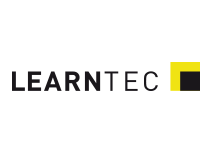University

Universities in the digital age - visit our programme of presentations from LEARNTEC and discover many more different ideas for your university on all three days of the trade fair.
What will digital universities of the future be like? What opportunities does digitisation offer students and teachers? Which IT solutions are suitable for my university in the first place? And how do modern data centres at universities need to be equipped in order to remain competitive?
If you are a
- data centre manager,
- IT manager
- or university teacher,
Come to LEARNTEC – the most important international platform for digital and life-long learning – and meet education experts and professional IT suppliers who will put their know-how at your disposal.
LEARNTEC for data centre managers
Data centres belong to the central facilities of any university. The growing number of students and use of digital technology leads to new requirements as regards communication infrastructure. So how do modern data centres at universities need to be equipped in order to remain competitive both now and in the future? Who will be responsible for maintaining and servicing the systems? What costs will be entailed?
LEARNTEC will provide you with answers to these and any other questions you might have.
LEARNTEC for IT managers at universities
In order to remain attractive, universities also have to embrace the digitisation process. At LEARNTEC, there are numerous exhibitors who can inform you about the ideal IT solutions for your university.
Here, during three compact trade fair days, you will meet professional IT suppliers who will put their know-how at your disposal.
LEARNTEC for university teaching staff
Using digital media in lectures is becoming more and more important. Interactive boards, tablets and digital bulletin boards are everyday fixtures at any modern university.
But how do digital universities work? How do you make the best use of the new techniques for your lectures and how do these improve the teaching and learning situation at your university?

